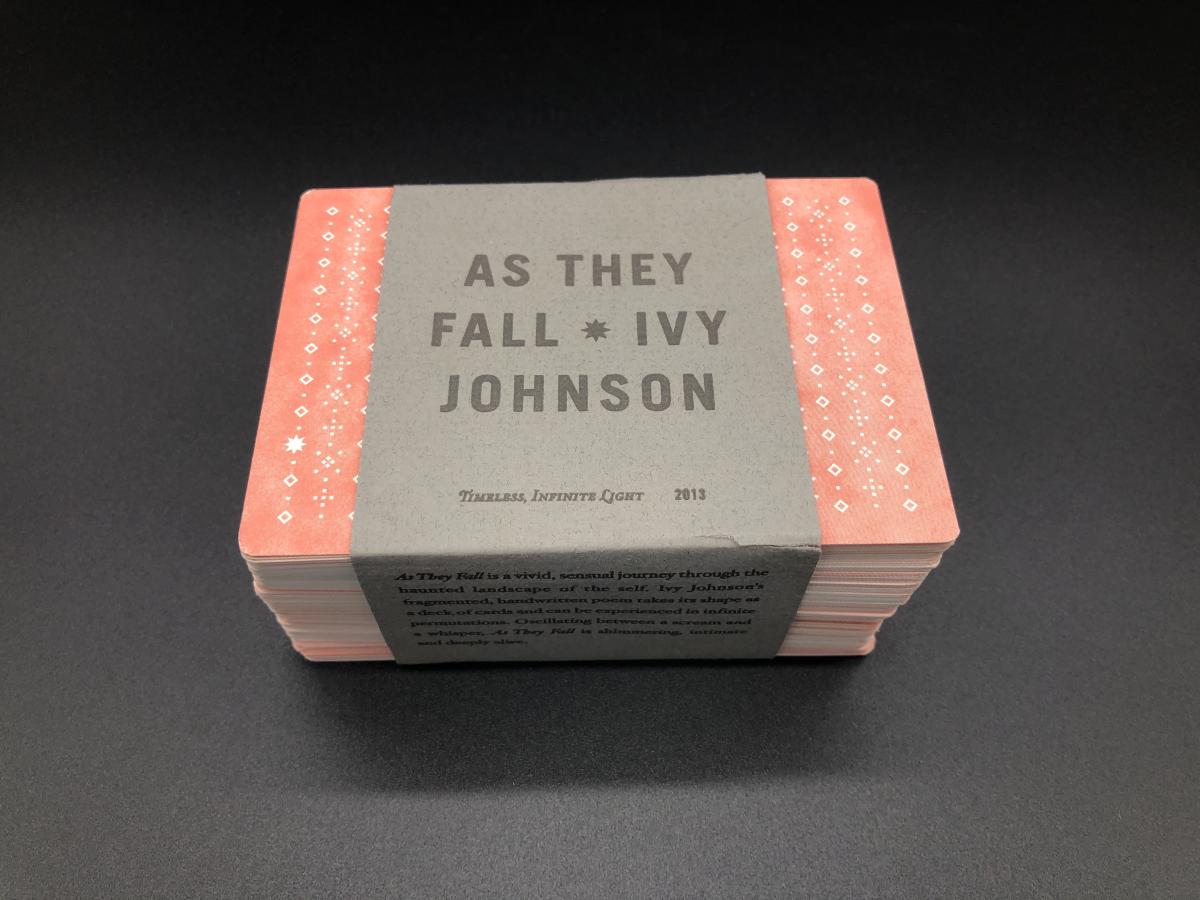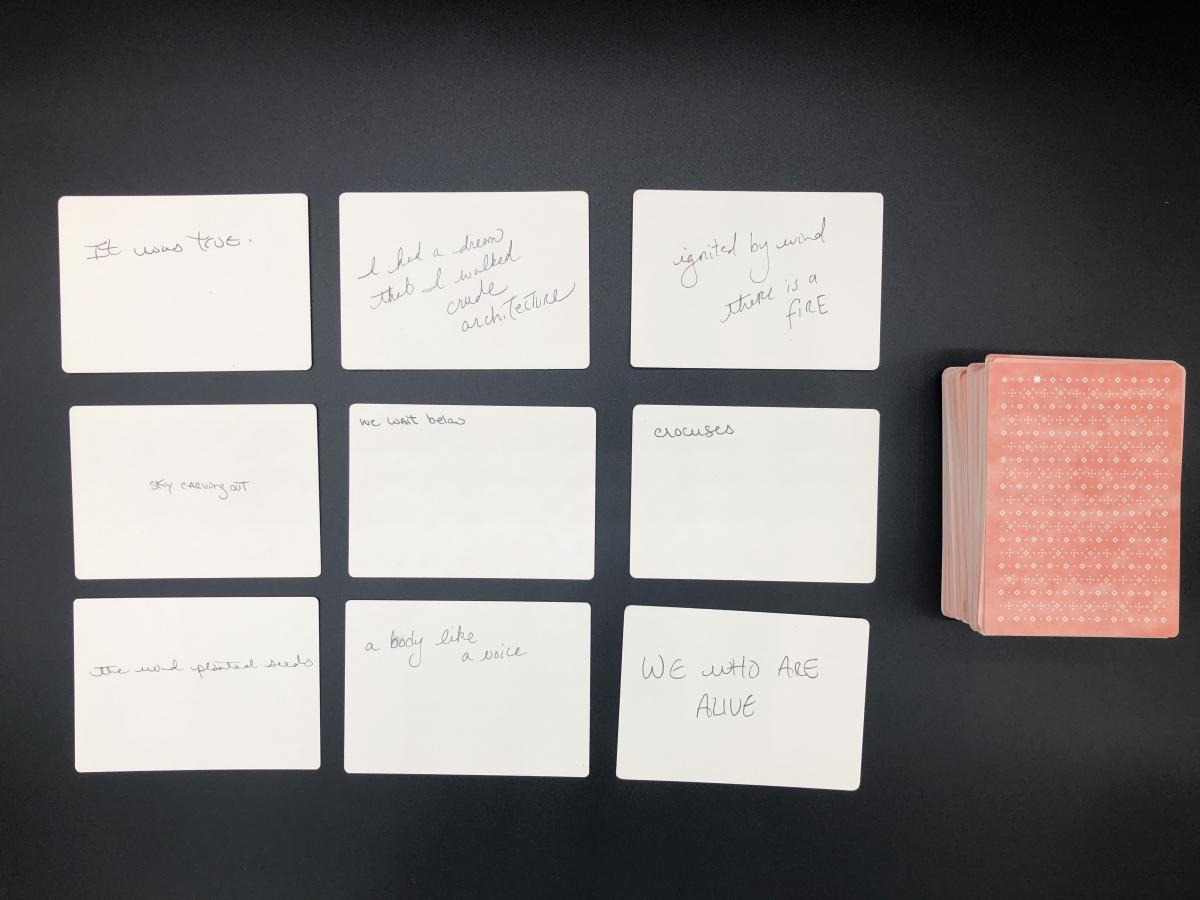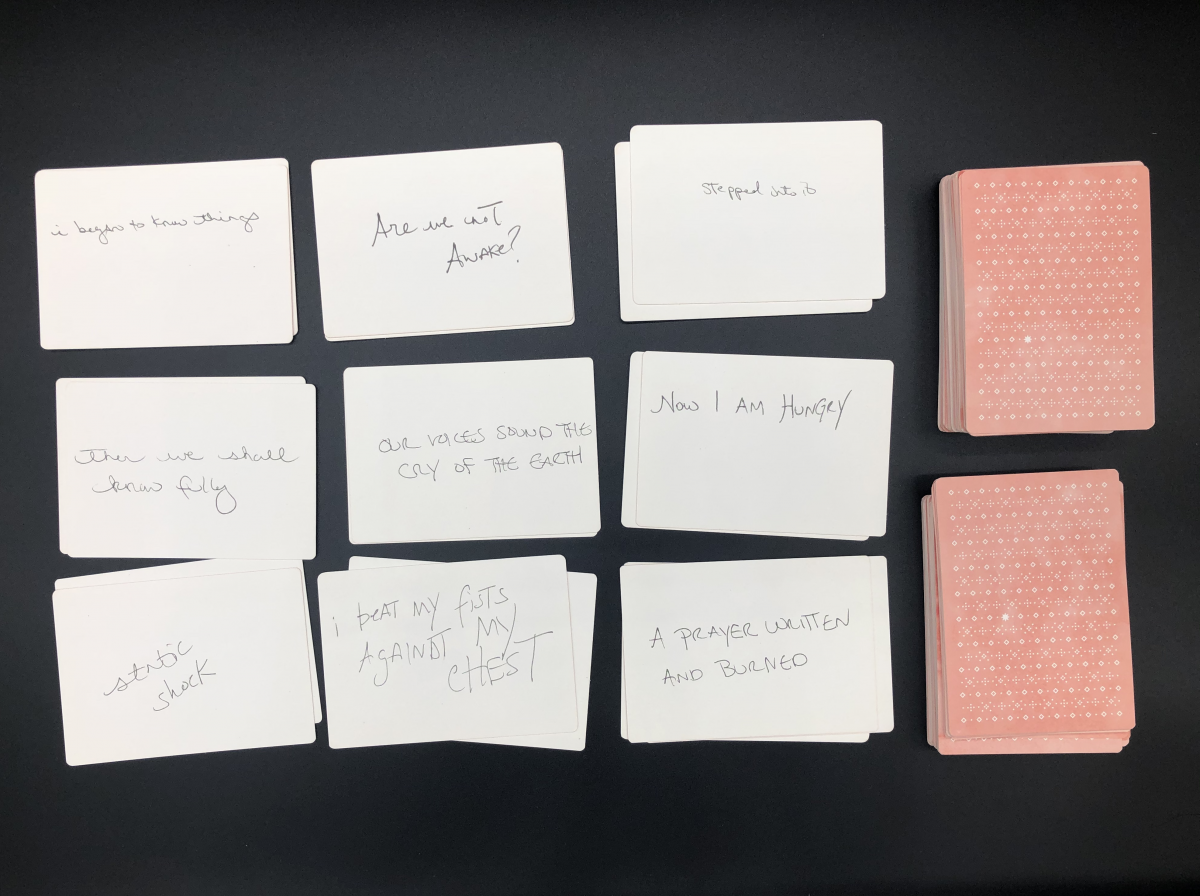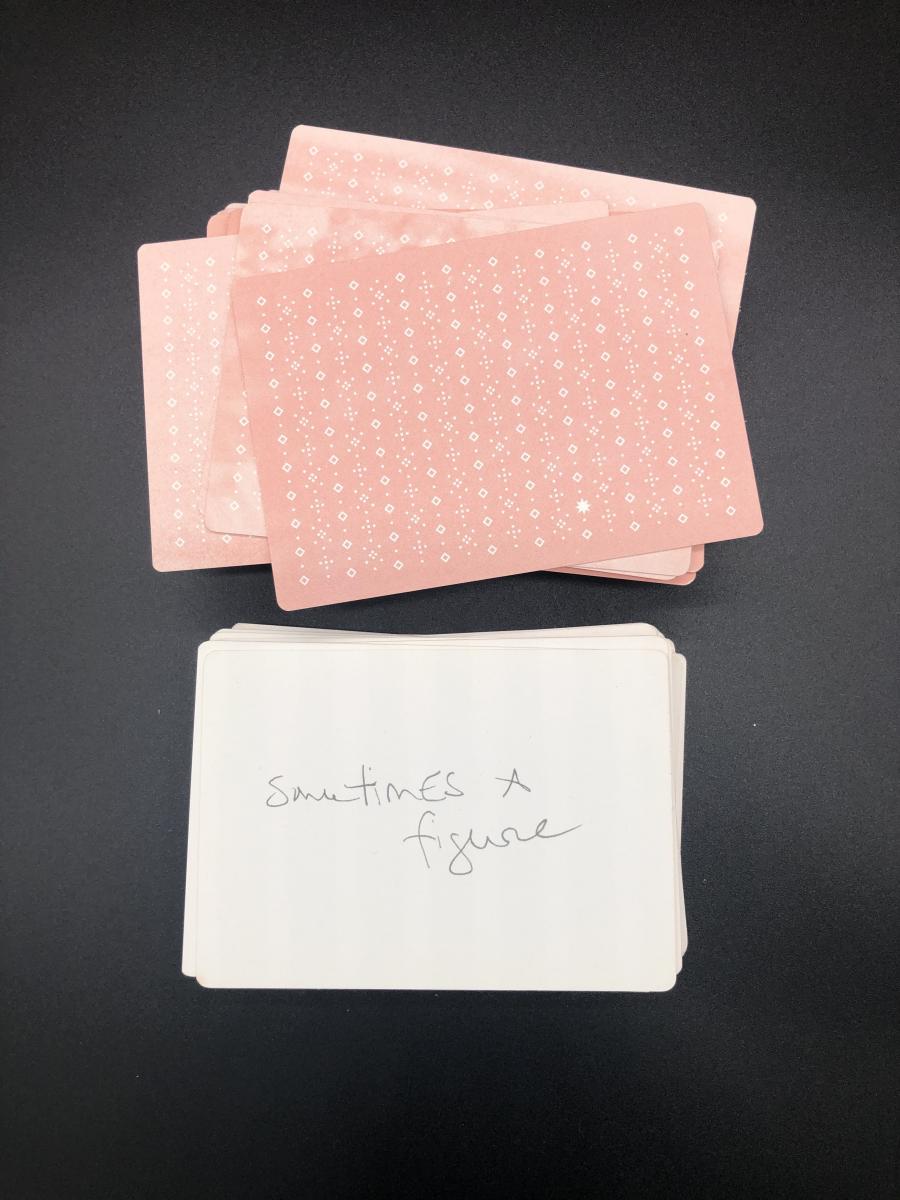The codex form—another name for what you probably picture when you hear the word “book,” or a stack of pages bound on one side—implies how the text it contains is meant to be read: from front to back, in order, progressing from left to right, top to bottom, one page to the next.

Ivy Johnson’s As They Fall, published by Timeless Infinite Light in 2013, rejects this directed movement through its text. Rather than taking a codex form, As They Fall resembles a stack of oversized playing cards with a deep salmon pink pattern printed on the back.
Flipped over, the 110 cards reveal handwritten words or phrases. Sometimes the handwriting is small, seemingly quiet; on other cards, phrases speak loudly, written much larger in all caps. On some cards, words are struck through, scribbled over, or are difficult to make out. They read like fragments of a diary, flashes of moments direct and urgent.

Johnson describes the cards as being for “aleatoric ritual,” aleatoric meaning to depend on chance—select a few cards and see what you find. Nightboat Books calls As They Fall a set of divination cards, the words and phrases to be read as a spell. My impulse was to lay them out like a card game (SET, anyone?), looking for resonances between what I turned face up: in image, diction, or even handwriting style.

As They Fall introduces chance into the act of reading, challenging us to shuffle through the deck to see what we find. It also leads me to think about modularity in writing, a concept Urayoán Noel discusses in Episode 4 of Poetry Centered, in which he performs his poem “Molecular Modular.” Taking a modular approach, poems can be composed in pieces designed to be moved around, used in new combinations to create a unique work each time.

How might chance inspire your writing today (or your reading)? How might turning a poem into modular pieces lead to a new work altogether?

